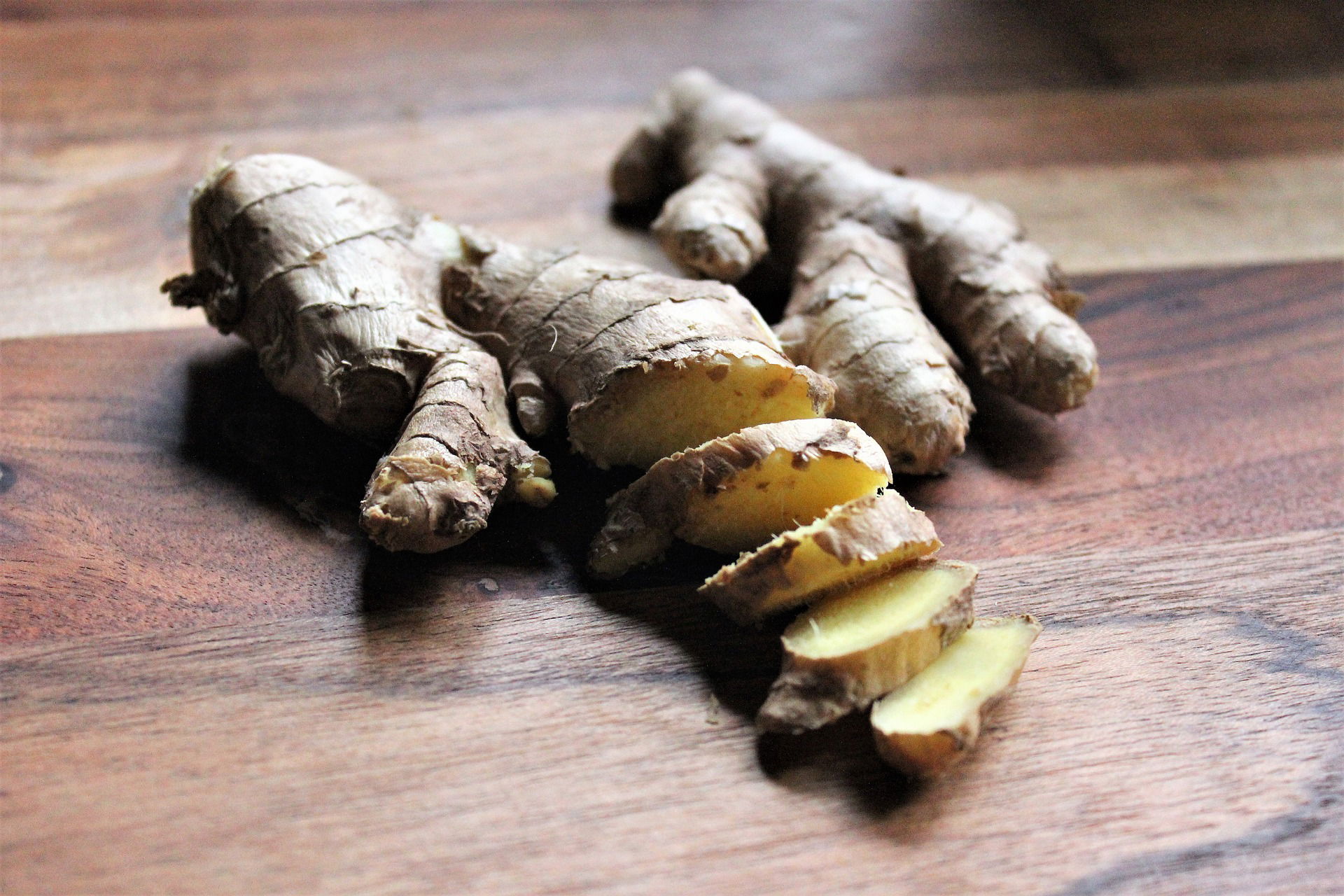Traditional Significance of Ginger in Saudi Arabia

Ginger is a staple ingredient in many cuisines around the world, and its use dates back to ancient times. In the Kingdom of Saudi Arabia, ginger holds a special place in their culture and traditional medicine. The country has long been importing fresh ginger from Thailand due to its high-quality and potency. Thai ginger has become widely accepted in Saudi Arabia and is used in many traditional dishes and herbal remedies. In this article, we will delve deeper into the cultural significance, health benefits, production and distribution, culinary uses, economic impact, and future prospects of Thai ginger in the Kingdom of Saudi Arabia.
Introduction to Fresh Ginger in Thailand
Fresh ginger, an aromatic root with a spicy and pungent flavor, is a popular ingredient in Thai cuisine. Thailand is one of the top producers and exporters of fresh ginger, thanks to its ideal tropical climate and fertile soil. The unique flavor and health benefits of fresh ginger have made it a staple in Thai households, as well as in the global culinary scene.
The History and Origin of Fresh Ginger in Thailand
Ginger has been cultivated in Thailand for centuries, dating back to the Ayutthaya period (1351-1767). It is believed that ginger was brought over from China by early traders and has since become an integral part of Thai cuisine. Today, fresh ginger is grown in various parts of Thailand, with the majority of production coming from the central and northern regions.
The Different Varieties of Fresh Ginger in Thailand
There are several varieties of fresh ginger grown in Thailand, each with its own unique flavor and aroma. Some of the most popular include Khing Yai, Khing Hang, and Khing Raak. Khing Yai is the largest and most aromatic, while Khing Hang has a milder flavor and is often used for medicinal purposes. Khing Raak is the spiciest variety and is commonly used in Thai curries and stir-fries.

Cultural Significance of Ginger in Saudi Arabia
Religious and Traditional Significance of Ginger in Saudi Arabia
Ginger holds a significant place in Saudi Arabian culture, both religiously and traditionally. It is said that the Prophet Muhammad praised the many health benefits of ginger and encouraged its use for medicinal purposes. Additionally, ginger is often served as a welcome drink to guests and is believed to have a warming effect on the body.
Ginger in Saudi Arabian Folklore and Traditional Medicine
In Saudi Arabian folklore, ginger is believed to have mystical properties and is used in various rituals and remedies. It is often used to ward off evil spirits and is believed to have the power to heal both physical and emotional ailments. In traditional medicine, ginger is used to treat a range of ailments, from digestive issues to respiratory problems.

Health Benefits of Fresh Ginger in Saudi Arabia
The Nutritional Value of Fresh Ginger in Saudi Arabia
Fresh ginger is a rich source of essential vitamins and minerals, including vitamin C, magnesium, and potassium. It also contains powerful antioxidants and anti-inflammatory compounds that can help boost the immune system and protect against chronic diseases.
The Medicinal Properties of Fresh Ginger in Saudi Arabia
Ginger has been used for medicinal purposes in Saudi Arabia for centuries. It is commonly used to alleviate digestive issues, such as nausea and bloating, and has been shown to have anti-inflammatory and pain-relieving properties. Additionally, ginger may help lower cholesterol levels and improve heart health.

Production and Distribution of Thai Ginger in Saudi Arabia
The Production Process of Thai Ginger in Thailand
Thai ginger is typically grown in small-scale farms, using traditional farming methods. The ginger root is planted in early summer and harvested after about nine months. Once harvested, the ginger is washed and sorted before being packed and shipped to various markets around the world.
The Distribution Channels of Thai Ginger in Saudi Arabia
Thai ginger is widely available in Saudi Arabia, both in fresh and dried forms. It is commonly sold in local markets and supermarkets, as well as in specialty shops that cater to Thai and other Asian cuisines. Additionally, Thai ginger is used by many Saudi Arabian chefs in their restaurants, adding a unique flavor and aroma to their dishes.
Culinary Uses of Fresh Ginger in Saudi Arabian Cuisine
Fresh ginger has been an integral part of Saudi Arabian cuisine for centuries. The Kingdom's cuisine is known for its rich and bold flavors, and ginger is one of the key ingredients that adds a unique zing and depth to the dishes.
Traditional Saudi Arabian Dishes that use Fresh Ginger
Fresh ginger is widely used in traditional Saudi Arabian dishes, such as Kabsa, Machboos, and Harees. These dishes are usually prepared with fragrant rice, meat, and a variety of spices including ginger, cumin, garlic, and saffron, giving them a delicious aroma and taste that is hard to resist.

The Growing Popularity of Thai Ginger in Saudi Arabian Cuisine
In recent years, Thai ginger has gained popularity in Saudi Arabian cuisine. This is because Thai ginger has a more intense and spicy flavor compared to the locally available ginger. The use of Thai ginger has added a new dimension to traditional Saudi Arabian dishes, creating a unique fusion of flavors that is drawing more and more food lovers towards it.
Economic Impact of Thai Ginger in Saudi Arabia
The popularity of Thai ginger in Saudi Arabia has created a significant impact on the country's economy.
The Export of Thai Ginger to Saudi Arabia
Thailand has emerged as a major exporter of ginger to Saudi Arabia. The country's warm climate and fertile soil provide ideal conditions for growing high-quality ginger, making it a preferred choice for Saudi Arabian importers.

The Contribution of Thai Ginger to the Saudi Arabian Economy
The growing demand for Thai ginger has opened up new opportunities for farmers, exporters, and local businesses in Thailand. The export of Thai ginger to Saudi Arabia has helped boost Thailand's economy while meeting the culinary needs of Saudi Arabian consumers.
Future Prospects of Thai Ginger in Saudi Arabia
The future prospects of Thai ginger in Saudi Arabia look promising, given its increasing popularity and economic contributions.
The Potential Demand of Thai Ginger in Saudi Arabia
As more and more Saudi Arabian consumers are becoming open to new flavors and cuisines, the potential demand for Thai ginger is expected to increase further. Thai ginger's unique flavor profile and health benefits make it an attractive option for consumers seeking healthier and more flavorful alternatives.
The Future Growth of Thai Ginger Exports to Saudi Arabia
The future looks bright for Thai ginger exports to Saudi Arabia. With the increasing demand for Thai ginger, the number of exporters and farmers in Thailand is expected to grow. This growth will not only benefit Thai businesses but also contribute to the economic growth of Saudi Arabia by meeting the increasing demand for high-quality ginger. In conclusion, the widespread acceptance of Thai ginger in the Kingdom of Saudi Arabia is a testament to its quality and versatility. From traditional medicine to culinary arts, ginger plays an important role in Saudi Arabian culture. With the increasing demand and production of Thai ginger, it is poised to contribute more to the economy of Saudi Arabia in the coming years. As we have seen, the health benefits, cultural significance, and economic impact of Thai ginger in Saudi Arabia make it a valuable commodity, worth celebrating and exploring further.

FAQ
What are the health benefits of fresh ginger in Saudi Arabia?
Fresh ginger has many health benefits, including its ability to aid digestion, fight inflammation, and reduce nausea. It is also believed to have antioxidant and antibacterial properties.
What are the traditional dishes in Saudi Arabia that use fresh ginger?
Fresh ginger is used in many traditional Saudi Arabian dishes, including lamb kabsa, chicken machboos, and haneeth. It is also a key ingredient in the popular beverage, Qishr, which is made from coffee husks and fresh ginger.
How is Thai ginger produced and distributed in Saudi Arabia?
Thai ginger is grown in many regions of Thailand and undergoes a rigorous production process. Once harvested, the ginger is cleaned, sorted, and packed for export. It is then distributed to Saudi Arabia through various channels, including air and sea transportation.
What is the future of Thai ginger exports to Saudi Arabia?
The future of Thai ginger exports to Saudi Arabia looks promising, with an increasing demand for high-quality ginger in the country. The Thai government and private exporters are investing in new production techniques and exploring new distribution channels to meet the growing demand.
